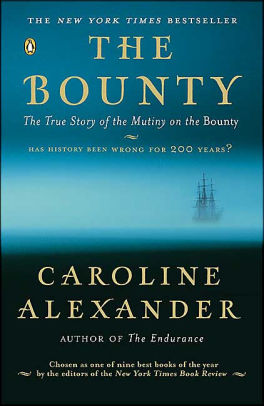It's been a long time since I updated my blog. Here on a slushy Janauary afternoon, I find myself really pining for an early spring. I have some moonlighting work to do redesigning and rebuilding an application that is long overdue, but it's not really what I'd prefer to be doing. I have editing to do on my WABDR video that is languishing due to the aforementioned software work. I'd much rather be doing that.
For vicarious motorcycle living I have the 2018 Dakar currently going on with my favorite ADV Brit Lyndon Poskitt doing very well after a precarious start (he was a little under the weather). But in true Lyndon fashion he's pressed on and is as competitive as ever. Currently in 3rd place in the Malle Moto division, he has two guys in front that are very good and it'll take everything he has to surpass. But with half the Dakar over, anything can and usually does happen.
 Aside from programming and watching/reading about Dakar, I always have a book I'm reading. Sometimes it's a favorite book I have that I enjoy re-reading like the Lord of the Rings trilogy, a new science fiction book, or something having to do with history. The latter is what I just finished reading. I received a bluray disc for Christmas of the 1938 "Mutiny On The Bounty" (Charles Laughton & Clark Gable) and as often happens with me when watching something based on a true story, I looked for a book that would give me the "rest of the story" for this movie. A little research found a book by Caroline Alexander titled "The Bounty: The True Story of the Mutiny on the Bounty." It is a well-researched book that covers the ship, the crew, the mission, the events as reported, the aftermath, and epilog of all of that. One of the things you have to appreciate about England is how consistant a civilization it is. By that I mean government, politics, etc. We look at modern events happening here in the USA or in Europe and think "ah, wouldn't it have been nice to live in simpler times." Reading this book bursts that illusion like a water balloon in your face. The event itself was traumatic all by itself, but the machinations that took place afterwards in England show that nothing has changed in over 200 years. Everything you see happening via the news, internet, twitter, etc. concerning our country and of course in the UK too - none of it is new. Revisionist history surrounding HMS Bounty happened before the trial even began. This narrative of how Bligh was the villian has been swallowed by the general public for literally centuries. This book goes a long way in placing everything in its context and finding all of the correspondence that sheds light on everyone involved.
Aside from programming and watching/reading about Dakar, I always have a book I'm reading. Sometimes it's a favorite book I have that I enjoy re-reading like the Lord of the Rings trilogy, a new science fiction book, or something having to do with history. The latter is what I just finished reading. I received a bluray disc for Christmas of the 1938 "Mutiny On The Bounty" (Charles Laughton & Clark Gable) and as often happens with me when watching something based on a true story, I looked for a book that would give me the "rest of the story" for this movie. A little research found a book by Caroline Alexander titled "The Bounty: The True Story of the Mutiny on the Bounty." It is a well-researched book that covers the ship, the crew, the mission, the events as reported, the aftermath, and epilog of all of that. One of the things you have to appreciate about England is how consistant a civilization it is. By that I mean government, politics, etc. We look at modern events happening here in the USA or in Europe and think "ah, wouldn't it have been nice to live in simpler times." Reading this book bursts that illusion like a water balloon in your face. The event itself was traumatic all by itself, but the machinations that took place afterwards in England show that nothing has changed in over 200 years. Everything you see happening via the news, internet, twitter, etc. concerning our country and of course in the UK too - none of it is new. Revisionist history surrounding HMS Bounty happened before the trial even began. This narrative of how Bligh was the villian has been swallowed by the general public for literally centuries. This book goes a long way in placing everything in its context and finding all of the correspondence that sheds light on everyone involved.
I am left with the conclusion that William Bligh was a superb sailor and was determined to do his duty to the best of his ability and was put in a less than tenable situation. Rather than a cruel, sadistic taskmaster that popular history has made in out to be, he was a firm commander but less a fan of physical punishment than his peers. He was put in what we would now call a no-win situation. Commanded to go to a tropical isle in a too-small ship with no complement of marines (which was unusual), stay for sufficient time to gather as many breadfruit trees as possible, and return to England through a new route untried by the Royal Navy, the odds were against him from the get-go as we would say. Five months in a tropical paradise where the crew was exposed to an idyllic lifestyle, then abruptly returned to Naval discipline for the return trip home, the temptation to stay was too much. Add to that a captain who was by himself trying to do his duty and you have an explosive mixture. Fletcher Christian wasn't the compassionate gentleman you see on screen. He was a selfish hedonist who decided to shirk his duty and his honor to return to Tahiti. The story of what happened after taking the Bounty is completely expected - no honor among thieves as it were.
The whole story is as fascinating as it is tragic. But it makes me realize that while "history is written by the victors" is often true, it is also written by those in positions of power. Much of what happens can take years, decades, and often centuries to expose. So read the internet, watch the news, and remember that what you're witnessing most likely has far more than is being told.









